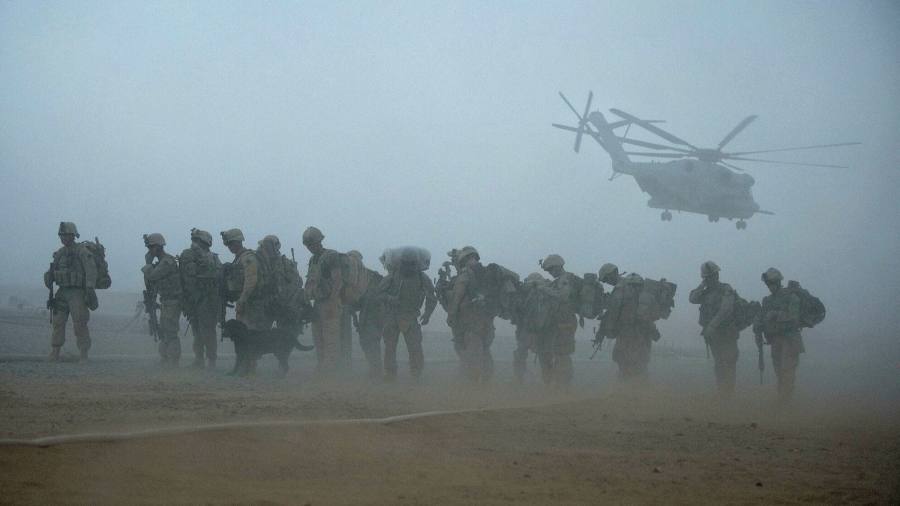Joe Biden will declare “it is time to end America’s longest war” as he formally orders a full withdrawal of US troops from Afghanistan by September.
“I am now the fourth American president to preside over an American troop presence in Afghanistan,” according to excerpts from his prepared remarks. “Two Republicans. Two Democrats. I will not pass this responsibility to a fifth.”
US presidents have promised to withdraw troops from Afghanistan since George W Bush first deployed them in the wake of the September 11, 2001, attacks to take down the Taliban government that harboured Osama bin Laden and his al-Qaeda Islamists.
More than 2,300 Americans have died, and more than 20,000 have been wounded, including 1,500 who lost limbs, in the decades-long war against Afghan and foreign militants, including the Taliban.
The order marks the end of a long effort by Biden to draw a line under US deployments in the country. As vice-president under Barack Obama, he opposed a “surge” in troops backed by the Pentagon. Obama sided with his uniformed leadership at the time.
Biden’s new order does not adopt previous policy pronouncements that a withdrawal is dependent on conditions on the ground, a shift that has been seized upon by critics of the decision.
Biden has characterised efforts to create the ideal conditions for US withdrawal as futile.
“We cannot continue the cycle of extending or expanding our military presence in Afghanistan hoping to create the ideal conditions for our withdrawal, expecting a different result,” he is expected to say.
Instead, “we have to focus on the challenges that will determine our standing and reach today and into the years to come”, he said.
The number of US troops peaked above 100,000 in 2010 before falling to a tenth of that number by 2015. The US still has 2,500 troops in Afghanistan today.
“We went to Afghanistan because of a horrific attack that happened 20 years ago,” Biden will say, according to the prepared remarks. “That cannot explain why we should remain there in 2021.”
US forces swiftly deposed the Taliban — a domestic Islamist group that had ties with al-Qaeda — from power in Kabul, but two decades later the group still holds larges swaths of territory and stands to regain power, reversing many of the human rights gains in the intervening years.
“The Taliban is likely to make gains on the battlefield and the Afghan government will struggle to hold the Taliban at bay if the coalition withdraws support,” the office of the director of national intelligence wrote in a report published this week.
Prospects for a peace deal, which the US has spent more than two years trying to broker under both the Trump and Biden administrations, “will remain low during the next year”, the report added.
The decision has drawn criticism from several leading Republicans as well as Democrats.
Jeanne Shaheen, a Democratic senator and member of the Senate Foreign Relations Committee, said she was “very disappointed” by Biden’s decision to walk away from Afghanistan, saying it undermined Washington’s commitment to the Afghan people and particularly Afghan women.
When the Taliban were in government, women had little access to education or any public role and were required to wear extensive coverings outside the home.
“Although this decision was made in co-ordination with our allies, the US has sacrificed too much to bring stability to Afghanistan to leave without verifiable assurances of a secure future,” she said in a statement.
Mitch McConnell, the top Senate Republican, said withdrawal of US forces from Afghanistan was “a grave mistake”.
“It is retreat in the face of an enemy that has not yet been vanquished and abdication of American leadership,” he said.
Biden said his administration would continue to support the government of Afghanistan and continue its diplomatic and humanitarian work. The US will also continue to train and equip the 300,000-strong Afghan national defence and security forces.
Some special operations forces with a narrow counter-terrorism remit are also likely to stay on in the country, focused on the potential threats to the US from Isis as well as al-Qaeda, according to US officials. These forces are not among the 2,500 troops who are officially in the country.


